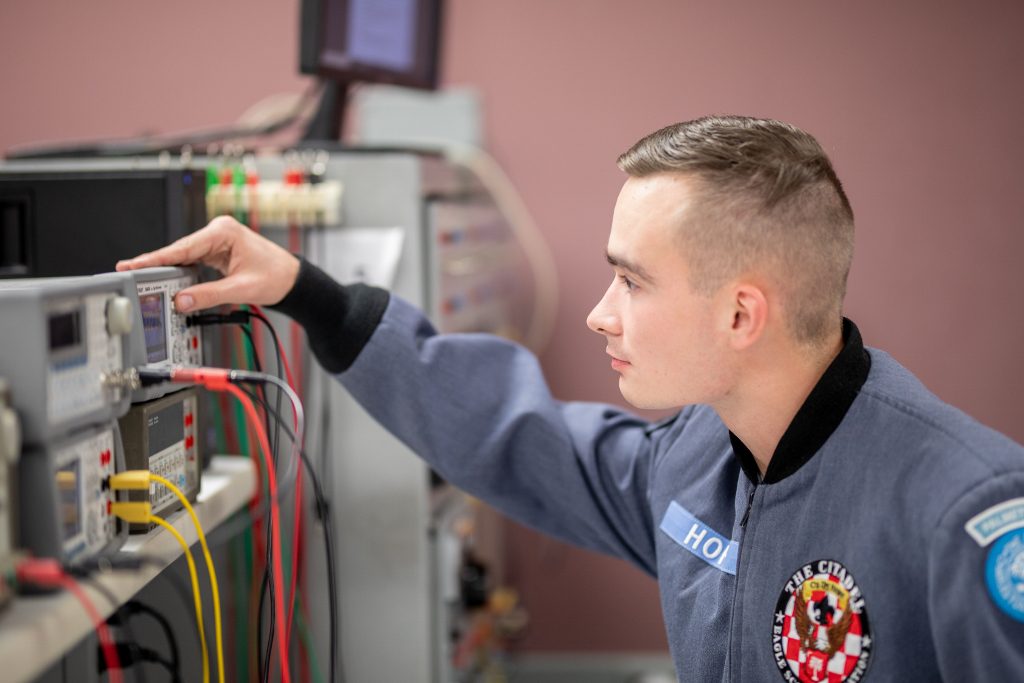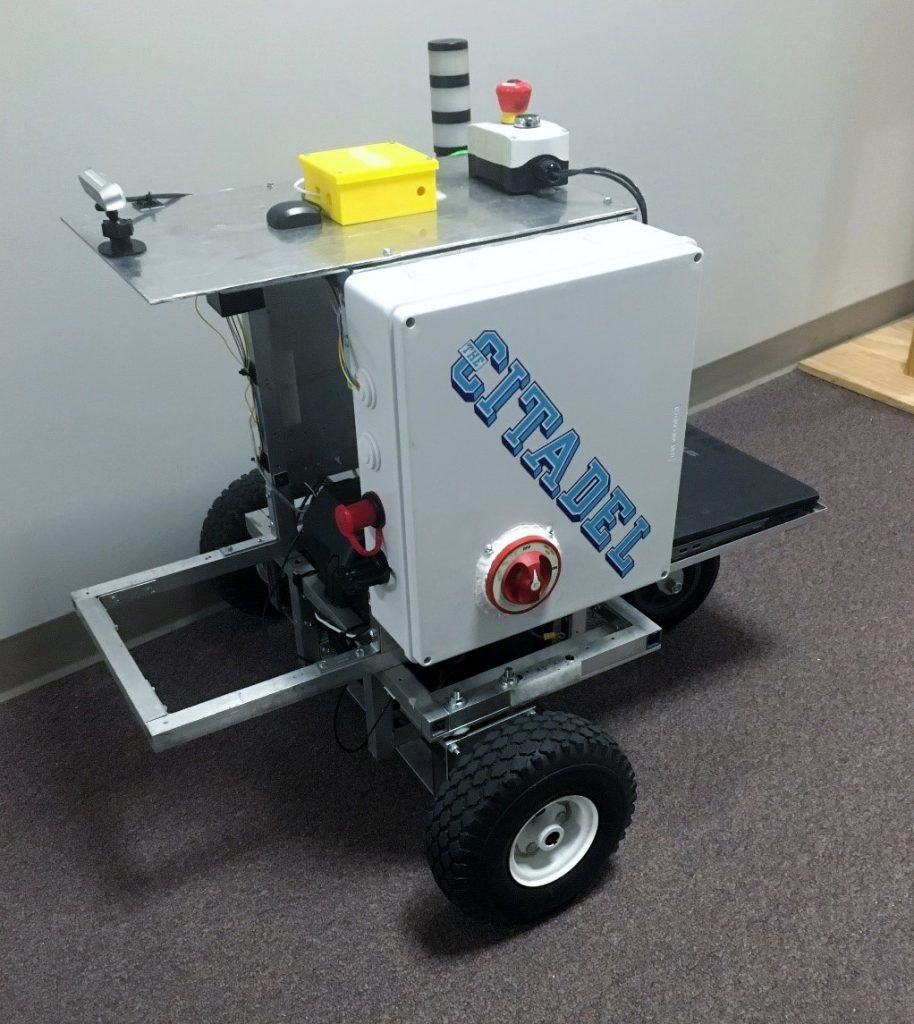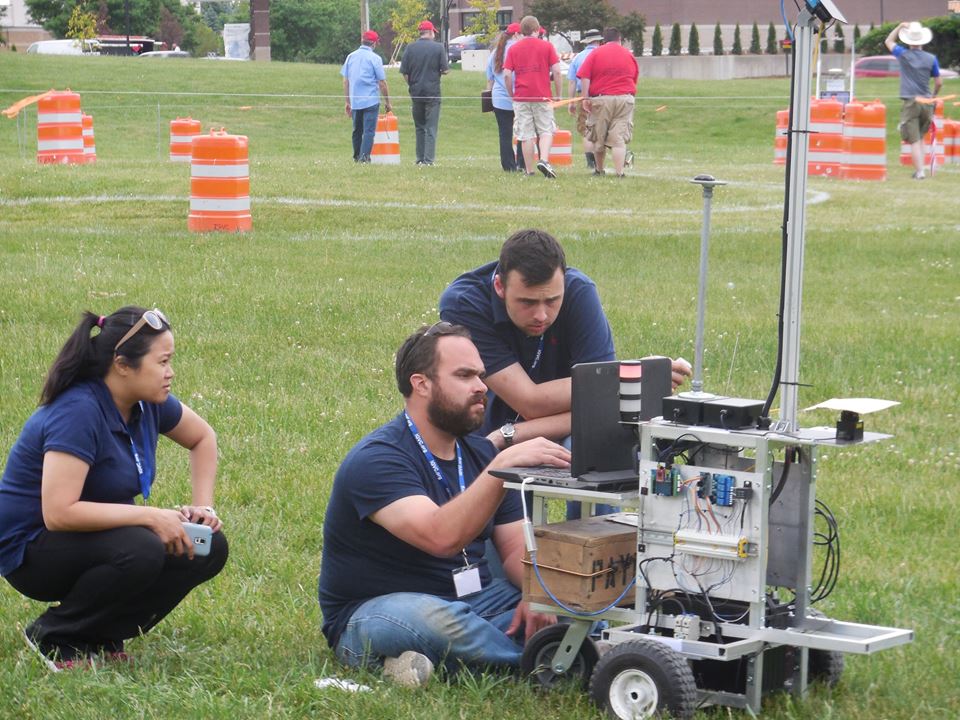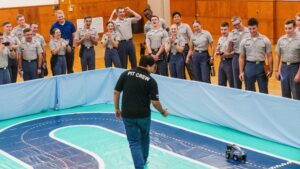
Artificial intelligence is present in the daily lives of most people, even if few stop to consider the source. A.I. guides ride sharing apps, commercial airliners, and even mobile check deposits.
The availability of highly skilled engineers prepared to help lead the development of A.I. and its associated industries in the Charleston, South Carolina area is vital to the state’s competitiveness and its economy. The Citadel School of Engineering, one of America’s oldest engineering programs, is meeting that growing demand.

It takes computer, electrical and mechanical engineering ingenuity to develop the A.I. supporting an autonomous vehicle, for example. Engineering students at The Citadel are already learning how to integrate those disciplines and have been for years.
“The students are called upon to bring together knowledge from a variety of undergraduate courses to design the autonomous vehicle,” said Bob Barsanti, Ph.D., electrical and computer engineering professor at The Citadel, and a target tracking and signal processing expert. “They must be able to integrate the electronic sensors, digital communications, motors, and computer controls to complete the challenge.”
The college’s Intelligent Ground Vehicle Competition (IGVC) team developed a winning design for the 2019 competition. Their intelligent vehicle, Bender, finished fifth out in the design portion of the competition, just behind powerhouse universities including: 1. Georgia Institute of Technology, 2. Manipal Institute of Technology from India, 3. Rensselaer Polytechnic Institute and 4. Hosei University from Tokyo. As in years past, the college had a strong presence among the nearly 50 institutions at the annual competition at Oakland University in Rochester, Michigan, a testament to the electric and autonomous vehicle skills developed within the The Citadel School of Engineering.

The Citadel was one of very few institutions offering only up to a Master’s degree to earn a place within any of the four portions of the competition.
“It is clear that our Citadel engineering team performed extremely well against some of the top schools around the world, and is a front runner in preparing engineers for the global industry surrounding electric and autonomous vehicles,” said Col. Ronald Welch, USA (Ret.),Ph.D., dean of The Citadel School of Engineering. “The Citadel School of Engineering is answering the call of local companies to produce the talent needed within a burgeoning electric and autonomous vehicle industry within the Lowcountry and South Carolina.
The Citadel has been competing in the IGVC since 2011 when it secured rookie of the year honors, along with a ninth place finish in the Autonomous Navigation challenge. The Citadel’s other high finishes include a seventh place in the design competition in 2014, and a ninth place in the 2016 autonomous navigation challenge.

The engineering faculty believe that competitions push students farther, and provide real world experience not found in the classroom. The faculty use a variety of competitions to engage students and promote the teaming skills desired by employers, one is the IGVC and another is the IEEE Regional Robotics Competition. The Citadel students are regularly in the top five within the regional robotics competition.
Engineering at The Citadel has been producing engineers for the region, state, and nation since 1842. The Citadel School of Engineering meets regularly with regional industry leaders to ensure its graduates are meeting the companies’ present and future technical and professional requirements and will continue to partner with The Chamber of Commerce, the Charleston Regional Development Council, and the Charleston Corridor to ensure the greatest needs area being fulfilled with exceptionally skilled, locally developed engineers.

 Citadel cadets take first place in Amazon Web Services DeepRacer Competition against cadets from West Point and the Naval Academy
Citadel cadets take first place in Amazon Web Services DeepRacer Competition against cadets from West Point and the Naval Academy “This school has a healthy amount of pride”: Meet Navy active-duty student Elisha Byron
“This school has a healthy amount of pride”: Meet Navy active-duty student Elisha Byron “I am part of a prestigious school with a long lineage of proud graduates”: Meet Marine Corps active-duty student John Bauman
“I am part of a prestigious school with a long lineage of proud graduates”: Meet Marine Corps active-duty student John Bauman

